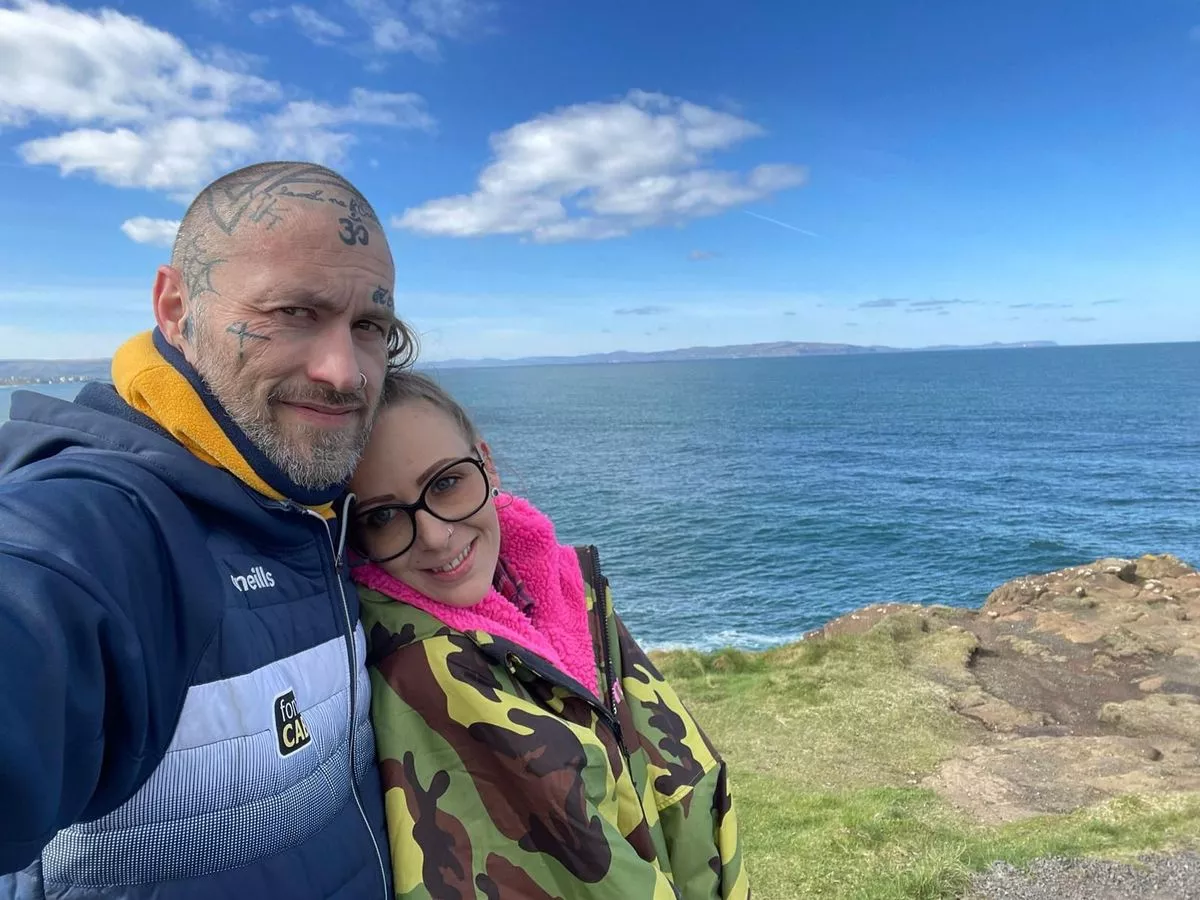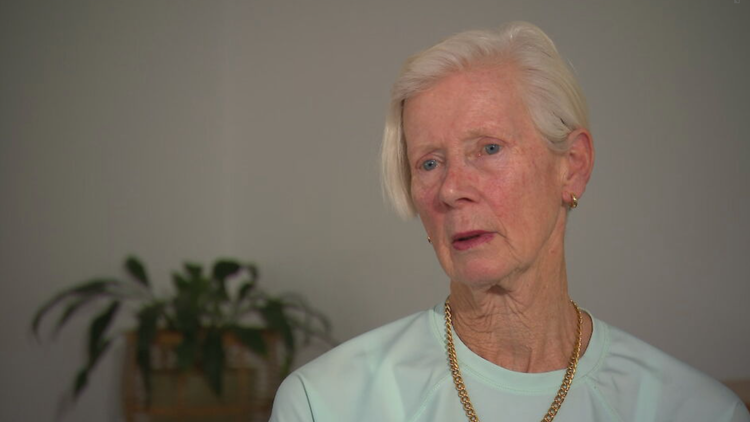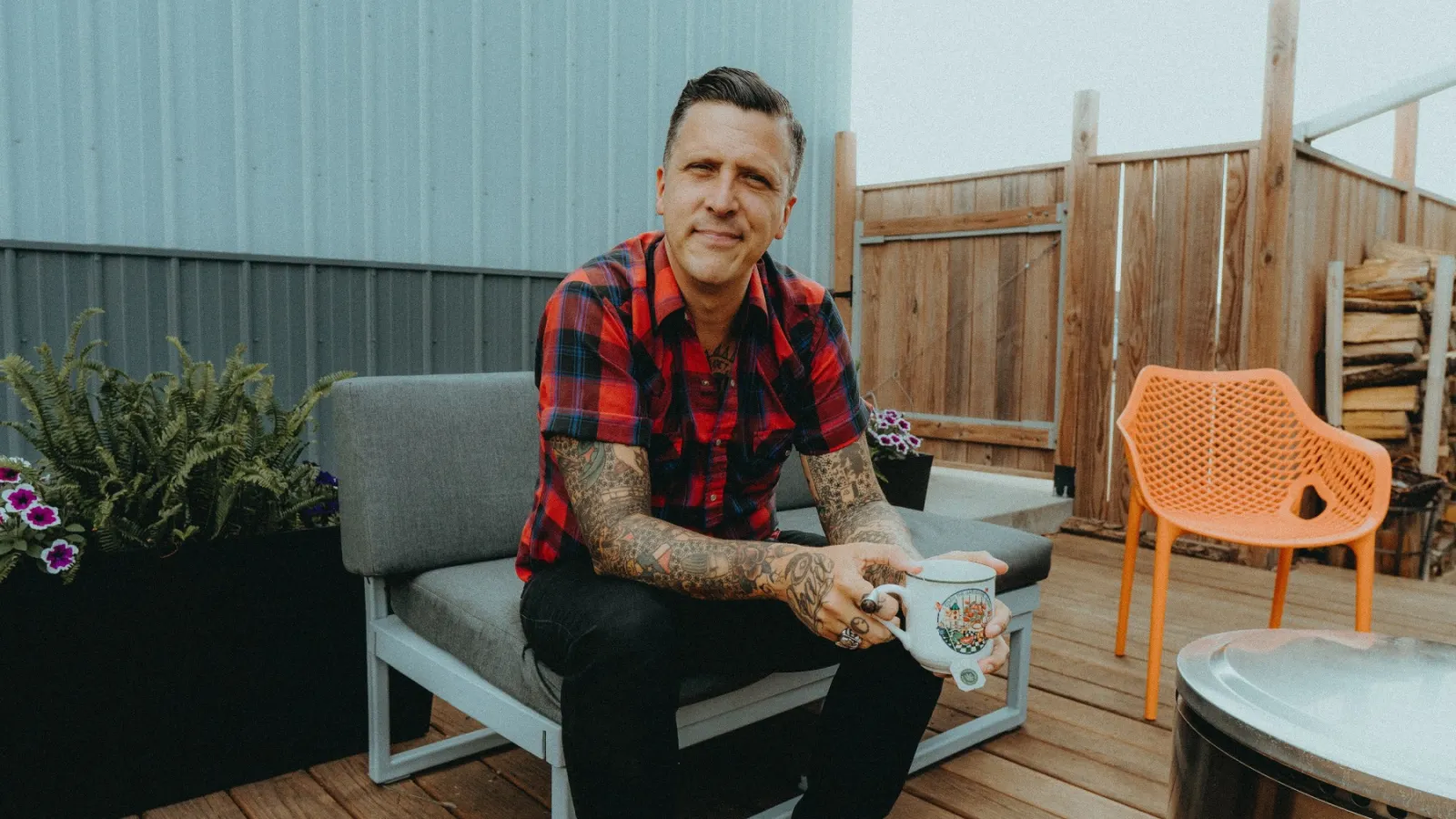Copyright belfastlive

A couple from Co Antrim have revealed how prescriptions for medical cannabis have allowed them to ditch a cocktail of heavy-duty painkillers and live life to the full. Stewart and Sarah McKeown, from Portrush , who are both registered disabled, were bringing up two sons with additional needs while struggling with constant and chronic pain, exhaustion and bouts of depression and low mood. Conventional treatments, including antidepressants, nerve pain medication, sleep aids and pain relief, were not working and the pair were desperate to find a solution to ease their symptoms. Today, two years after each was prescribed different types of medicinal cannabis , Stewart, 44, and Sarah, 42, are living and sleeping well, with their pain under control and no trace of the anxieties they had been suffering. Their turning point came in 2023 when Sarah started researching the Billy Caldwell story and discovered Billy’s mum Charlotte Caldwell had forced a change in UK law to legalise medicinal cannabis, following a crisis campaign to find a suitable treatment for her son. Sarah was the first to take the plunge into the world of medical cannabis and says she was astounded by the results she experienced within days. She said: "I'd tried everything else. When I realised there was a legal, medical route to try cannabis under a doctor’s care, I thought - what have I got to lose? I had been struggling for years with fibromyalgia, anxiety and sleepless nights. I had been prescribed antidepressants, such as sertraline and later amitriptyline to try to help with anxiety and fibromyalgia-related nerve pain. "I'd tried everything the doctors could give me - antidepressants, gabapentin, sleeping tablets - but nothing really touched the pain or the exhaustion. I was either wired and anxious or spaced out. "Over-the-counter painkillers including paracetamol and ibuprofen became almost useless against the widespread pain I experienced daily. The GP prescribed pain medications like gabapentin and pregabalin but they also left me with drowsiness and brain fog. Muscle relaxants and sleep aids including diazepam gave me short-term relief but left me with a constant groggy feeling. "Nothing really worked for me. The tablets would knock me out for a bit, but I’d wake up in pain again, or worse, foggy and exhausted. I was just existing, not living the life I wanted and I just needed to feel normal again. Desperate for help, Sarah’s research revealed Billy Caldwell’s story and the campaign that changed the UK law on medical cannabis . Sarah turned to a private clinic in London and was assessed by a doctor who prescribed her medical cannabis. She said: "Within days I noticed the difference. I could finally rest. For the first time in years, I wasn’t waking in agony and I could sleep through the night which I hadn’t been able to do for years. "I tried micro-dosing the oil initially, but found the effects were slower to take hold and the costs were higher. But vaping the flower just works better for me - I find it works almost instantly and gently and it’s manageable. I can take a couple of puffs when I need to and within minutes my pain and panic ease. "Every journey is different for every prescribed patient but once I started using prescribed medical cannabis, I realised I didn’t need the other pain relief pills anymore so I came off them slowly, bit by bit, and for the first time in years I wasn’t drowsy, anxious or in constant pain. I finally felt like myself again. I got my life back. "It’s not a cure, but it makes my day so much more manageable. Before medical cannabis, I could go six or seven days without sleep. Now I can finally rest, I function and be present for my kids." After witnessing the dramatic difference in his wife’s quality of life, Stewart decided to enquire about a prescription too, in the hope it might help manage the chronic post-surgical pain he had been suffering for years. Tattoo artist Stewart was born with Poland Syndrome, a rare congenital condition affecting around one in 20,000 people in the UK. It causes underdevelopment of the chest muscles on one side of the body, often leading to lifelong pain and mobility issues. And the vital surgeries which had been designed to help Stewart live well, had also left him with deep scarring, constant and chronic pain and struggling to sleep. He said: "When I saw the change in Sarah, I thought maybe it could help me as well - and it did. It’s given us both our lives back. "Before I was prescribed medicinal cannabis I was on a cocktail of painkillers - morphine, tramadol, gabapentin, diazepam - you name it. "They dulled my pain, but they dulled everything else too. I couldn’t focus properly, I couldn’t sleep properly, and I felt I wasn’t really present the way I wanted to be with my family. At the time I was existing the best I could, but not really living." He said switching to medical cannabis transformed his day-to-day life and together with Sarah and their sons, they are planning for the future. Stewart said: "Now my pain is under control, I’m clear-headed and I can sleep. I’m back to being me again." But the couple say paying around a total of £800 a month for their prescriptions, is a challenge. Stewart explained: "Morphine took away the pain, but it also took me out of the room. With medical cannabis, I’m clear-headed, sleeping and part of my family again. It has been a massive game-changer but there is a downside, and that’s the cost. "Our joint prescription bill comes to around £800 a month. The medicine works for us and we’re very fortunate to be able to meet the costs at the moment but I know there are many people who just cannot find the money to pay for private prescriptions. "So we are supporting the upcoming I Am Billy Heath initiative which will be aimed at helping people access consistent supply of high quality medical cannabis at a more affordable price. The initiative is the brainchild of Charlotte Caldwell and should be in place in Northern Ireland and across the UK in 2026." It was Charlotte Caldwell’s I Am Billy campaign that brought about the change in the UK law around medical cannabis in 2018, but today NHS GPs remain reluctant to prescribe it. Only doctors listed on the GMC’s Specialist Register can initiate a prescription for cannabis-based medicines. GPs are not permitted to issue the first prescription although they may continue one started by a specialist, but it rarely happens because NHS pathways for doing so are unclear. And there are currently no comprehensive NHS guidelines for prescribing or monitoring cannabis-based medicines. The majority of doctors in the UK have not received formal training in cannabinoid medicine, leaving them without certainty over dosage, interactions and efficacy. And without clear frameworks, doctors remain deeply cautious. The law change though, has created a major new player in UK medicine with private practices growing in size and licensed prescribers growing in numbers, responding to the gap in treatments highlighted by people like Sarah and Stewart McKeown. Charlotte Caldwell had been battling for help for her son for years, but it took just 20 weeks from Billy’s deepest crisis played out under the public spotlight, to the change in the law. On June 11, 2018, Billy’s medical cannabis oil was confiscated by the Home Office at Heathrow Airport, when mum and son returned from Toronto, Canada with a six-month supply of doctor-prescribed cannabis oil to treat his severe epilepsy. On June 15, the youngster suffered a series of life-threatening seizures and was rushed to hospital in London with Belfast Live revealing the crisis to the world, his situation making national and global headlines, prompting widespread public outrage and political pressure. The following day an emergency licence was granted by the then Home Secretary Sajid Javid allowing Billy’s medicine to be returned and used under medical supervision and his seizures stopped almost immediately. From July to October of that year a government review was conducted and concluded that cannabis-based medicines have legitimate medical value. The Chief Medical Officer and Advisory Council on the Misuse of Drugs recommended a change in classification. And on 1 November 2018 the UK government legalised the prescription of cannabis-based medicines by specialist doctors. Charlotte said: “When Billy received that first prescription, it wasn’t just about one little boy - it was about every patient and every family fighting for a better quality of life. “With I Am Billy Health, we’re taking the next step. We’re creating a trusted, fair and transparent way for people to get the medicine they deserve, prescribed properly, priced fairly and delivered consistently. “Those who need prescriptions will be able to access high-quality, laboratory-tested medical cannabis prescribed by qualified, licensed doctors. The initiative’s mission is simple: to ensure that no one is left behind in the journey toward safe, effective, and affordable treatment.” THC (tetrahydrocannabinol) is one of the main active compounds found in the cannabis plant. It’s the chemical responsible for most of the plant’s pain-relieving and anti-spasmodic effects, as well as the mild psychoactive “high” associated with recreational use. In medical cannabis, THC is used in controlled, carefully measured doses under a doctor’s supervision. When prescribed legally, it can help with chronic pain, muscle spasms, anxiety, and sleep problems, often succeeding where conventional medicines fail. THC works best when balanced with another compound called CBD (cannabidiol), which helps to reduce side effects and enhance therapeutic benefits. CBD (cannabidiol) is another key active compound in the cannabis plant — but unlike THC, it is non-psychoactive, meaning it doesn’t produce a “high.” CBD is widely recognised for its anti-inflammatory, anti-anxiety, and anti-seizure properties. It’s used to help manage conditions such as epilepsy, chronic pain, fibromyalgia, multiple sclerosis, and anxiety disorders. In medical cannabis, CBD often works in balance with THC, helping to enhance the therapeutic benefits while reducing potential side effects such as drowsiness or dizziness. Sativex (nabiximols) : Legal and licensed in the UK since 2010. It is a cannabis-based medicine that is MHRA-approved for use in multiple sclerosis (MS). It was made legal under a special schedule (Schedule 4, Part I) of the Misuse of Drugs Regulations 2001. Even though it’s made from cannabis plants, it was legally prescribable by specialist doctors. Nabilone (Cesamet): It is a legal synthetic drug that mimics THC. It has been used since the 1980s for chemotherapy-related nausea. It was never classed as “cannabis,” so it was considered legal under medical supervision. Epidiolex (pure CBD oil): Unlicensed but legal under special 'compassionate use' programmes before 2018. It became fully licensed in 2019 after reclassification, for certain childhood epilepsies. What was illegal before 2018 Any unlicensed cannabis products, such as: For all the latest news, visit the Belfast Live homepage here and sign up to our politics newsletter here.



